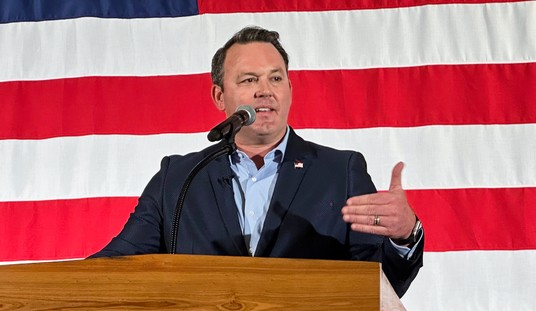Popular Mechanics describes the marketing of treachery. Now why would there be buyers for treachery?
When Robert Hewson, of Jane’s Defence Weekly, saw the promotional video for a new missile system called Club-K, he must have known it was special. A Russian company called Morinformsistema-Agat is marketing a cruise missile that can hide inside and launch from inside a shipping container. The six-minute video depicts an invasion from a neighboring country, and the afflicted nation hiding the missile in a port setting, inside an innocuous grey shipping container. The container’s top flips open, the missile extends vertically and launches. In the video (embedded below), music blares—what sounds like the soundtrack to the Disney movie Pirates of the Caribbean—as the Club-K’s four missiles careen into the sky. The missiles take separate paths, aimed at warships, a concentration of tanks and an airfield.
[youtube rqwMzQiXlK0&hl]
America too has new and powerful weapons. But unlike the Club-Ks, it wants the cards out in the open. In fact, according to the New York Times, the US wants to keep other great powers in the loop so that nobody gets the idea that its powerful new weapons are aimed at them. Describing a weapons system that could strike anywhere in the world within a very short time and potentially decapitate any nation, the NYT said:
The planning for Prompt Global Strike is being headed by Gen. Kevin P. Chilton of the Air Force, the top officer of the military’s Strategic Command and the man in charge of America’s nuclear arsenal. In the Obama era — where every administration discussion of nuclear weapons takes note of Mr. Obama’s commitment to moving toward “Global Zero,” the elimination of the nuclear arsenal — the new part of General Chilton’s job is to talk about conventional alternatives. …
But the key to filling that gap is to make sure that Russia and China, among other nuclear powers, understand that the missile launching they see on their radar screens does not signal the start of a nuclear attack, officials said.
Under the administration’s new concept, Russia or other nations would regularly inspect the Prompt Global Strike silos to assure themselves that the weapons were nonnuclear. And they would be placed in locations far from the strategic nuclear force.
“Who knows if we would ever deploy it?” Gary Samore, Mr. Obama’s top adviser on unconventional weapons, said at a conference in Washington on Wednesday. But he noted that Russia was already so focused on the possibility that it insisted that any conventional weapon mounted on a missile that could reach it counted against the new limit on the American arsenal in the treaty.
Warfare — and preventing warfare — has always had a political dimension. Signaling remains an important part of keeping the peace. America doesn’t want the Russians to get the wrong idea if its radars detect something flashing through the neighborhood. But other powers long for the darkness. They gain from ambiguity, not clarity. The deployment of Scuds in Lebanon by Syria, the search for nuclear weapons by Iran are signals in the same way that the US determination to restrain itself is also a signal. But what exactly they mean is the central problem in American foreign policy.
The basic facts are well known, but the semantics — what it means — is critically dependent on the attitudes of the parties. Will Iran and North Korea see American restraint as an offer of peace or a sign of weakness. Are the actions of Syria, North Korea and Iran mere cries for help and pleas for recognition? Are Hezbollah and al-Qaeda expressions of legitimate grievance? Or do they represent a genuinely implacable strain of aggression and hostility. The decipherment of the message depends as much on the thinking of the listener as the intent of the speaker. It determines whether and how much to reach out, and whether or how much to suspect.
Treachery has been around since the days of Judas, and probably long before. Beware of Greeks bearing gifts. Beware, said Bela Lugosi, beware.
But some people hear nothing but their own thoughts. And they can’t imagine why anyone should think differently. Recently James Richard Sauder broke into Minot Air Force Base in North Dakota festooned with crystals. His mission in attempting to enter the missile base was to spread World Peace. “We need cooperative, mutually beneficial economic arrangements, and harmonious relations between peoples and nations on this planet. As a symbol in that regard, I have left a skein of multi-colored Red Heart yarn at the missile silo to signify that here the thread of a new, world-wide narrative begins. It is a new global narrative with heart,” he wrote. It was a sentiment that would have made many a statesman worthy of a Nobel Prize. In this case, it bought him a trip downtown. But his intentions were pure something. And to make sure of it, he brought crystals in the hope of invoking the turkey, “the natural spirit of this continent”.
“Many other large crystals adorn my headdress – from Arkansas, New York, Tibet and Brazil. The crystals represent the living Earth. The feathers in my headdress are from the Rio Grande species of the North American wild turkey. Benjamin Franklin felt that the American wild turkey should be the national bird. I agree! For me the wild turkey exemplifies the natural spirit of this continent.”
Who knows what evil lurks in the heart of men? Who knows what lurks in the heart of shipping containers? Obama knows. Or maybe not.










Join the conversation as a VIP Member